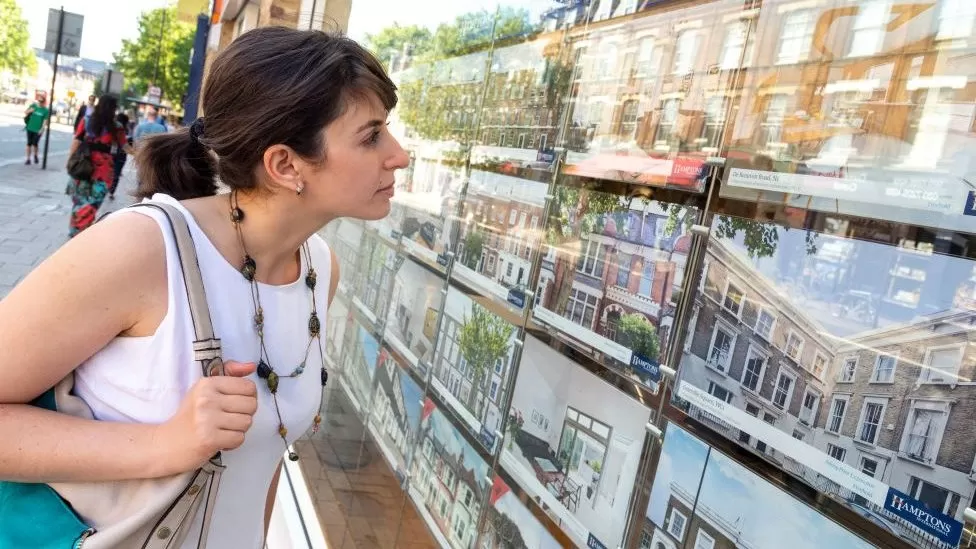
UK house prices to fall until 2025, predicts Lloyds
The UK’s largest mortgage lender expects house prices to fall this year and next before rising in 2025.
Halifax-owner Lloyds Banking Group predicts prices will drop 4.7% this year and by a further 2.4% in 2024 before recovering.
Lenders have blamed higher borrowing costs for a slowdown in house sales.
But the average house price remains about £40,000 higher than at the height of Covid when prices soared, as people working from home sought more space.
Lloyds said on Wednesday that while prices would fall over the next two years, longer term growth would be steady with prices rising 0.6% by 2027.
Interest rates are currently at 5.25%, their highest level for 15 years, driven by a series of rate rises aimed at tackling soaring consumer prices.
As a result, lenders have raised their borrowing rates, including for mortgages. The latest figures show the average rate on two-year fixed is 6.24% on average, according to financial information service Moneyfacts.
Lloyds’ forecasting is based on the Halifax House Price Index, which excludes figures for cash buyers, which currently make up over 30% of housing sales.
Despite data from mortgage lenders showing falls in house prices, the average price of a home in the UK remains high.
According to the UK House Price Index, the average property price based on completed transactions in the UK in August this year was £291,044, which was little changed from 12 months ago.
Lloyds, which also owns Halifax and Bank of Scotland, issued its house prices forecast alongside its trading statement revealing it had made bumper profits as it continues to benefit from higher interest rates.
The banking group revealed a pre-tax profit of £1.9bn for the three months to September, up from £576m in the same period last year.
Most banks have reported higher profits due to rising interest rates, as customers pay more to borrow cash for mortgages, loans and credit cards.
There have been concerns banks are raising borrowing rates much faster than they are savings rates, particularly for easy access accounts. The average easy access savings rate, the most common on the market, is currently 3.21%.
But banks including Lloyds have defended themselves against the criticism.
Charlie Nunn, group chief executive at Lloyds, said the bank remained “focused on supporting our customers and helping them navigate the uncertain economic environment”.
The bank said it had seen more customers move cash out of current accounts and into savings accounts.